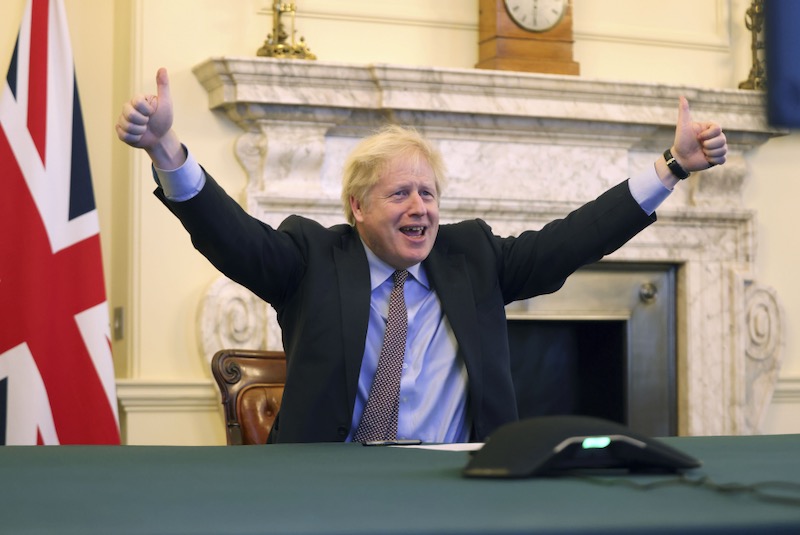At the heart of Brexit is a piece of nonsense. According to its advocates, Brexit was fundamentally about restoring the full sovereignty of the United Kingdom. And the symbolic centre of that assertion was control of fishing. It is this that nearly derailed the negotiations in their final hours as the New Year's Eve deadline approached. Sovereignty over workplace regulations is an elusive concept at best, almost impossible to get worked up about. Sovereignty over coastal waters is simple and visible. Politically, therefore, it was crucial to “getting Brexit done”.
Except of course it wasn't. Legal sovereignty only extends for 12 nautical miles from the national coastline. What the dispute was about was control of the Exclusive Economic Zone (EEZ), and who may fish in it. Under the United Nations Convention on the Law of the Sea, adopted only in 1982, the 200 nautical mile zone in question is not part of the sovereign territory of the adjacent landmass.
Under the convention, which has the status of an international treaty, a sovereign nation has the exclusive right to exploit that area of sea in terms of mineral extraction including oil and gas, to use any tides, currents and winds for the creation of energy, and to extract fish and other marine life from it. But the sea surface must remains open to the passage of shipping, as international waters.
And that is the very negation of sovereignty. A sovereign nation may decide who crosses its boundaries and enters its territorial waters. If it cannot control that, it does not have sovereignty. The distinction is not merely technical. The debate with the European Union over fisheries was treated by the British side as the very essence of the sovereignty issue at the heart of Brexit. But like so much else involved in Brexit, this was dishonest. As dishonest in fact as the Prime Minister's claim that British sovereignty over its Exclusive Economic Zone had, as a result of these successful negotiations, been upheld. It never existed, and still doesn't.
It is ironic, in view of all that, that the final move in the Brexit game that led to a Christmas Eve settlement was a fishy climb-down. According to Boris Johnson, the share of fish caught in the British EEZ by British fishermen was previously fixed at about 50 per cent of the total, but under his deal that would rise, over five years, to closer to two-thirds. Half way between 50 per cent and 66.7 per cent is just over 58 per cent. Anything above that is closer to two thirds. That is a minimum gain of less than two per cent a year. It is not much of a victory.
As well as Britain's fishing industry, the other interest group who can claim they have been sold down the river by this deal are the Ulster Unionists. They have been given the great economic advantage of being half in and half out of the EU, but the price they have to pay is a national boundary – notionally in the Irish Sea – separating them from the British mainland. That crosses their very conspicuous red line, blood red, in this case, that caused them to sabotage Theresa May's initial Brexit deal, when the Irish Sea border idea first emerged as the alternative to having a physical barrier between North and South.
So Great Britain may have restored its sovereignty with the Christmas Eve deal, but Northern Ireland has not. This weakens the whole concept of Unionism, expressed by Margaret Thatcher as the idea that Belfast was as British as Finchley. Ireland has taken a significant step towards the reunification of its two parts. And almost nobody seems to have noticed. Where sovereignty is concerned, Belfast may still be almost as British as Finchley, but it is also now almost as Irish as Dublin.
This deal may or may not be the Brexit the British voted for in 2016, but it is not so popular in 2020. Recent polls show that the margin between those who think the referendum vote was a mistake and those who don't is now ten per cent. This is not the same as saying they would vote to overturn Brexit by that margin if given the chance: Brexit is now widely accepted as a fait accompli. But a triumph? A victory for the will of the people? It may yet turn out to be anything but.



 Loading ...
Loading ...
What do you think?
You can post as a subscriber user ...
User comments (0)